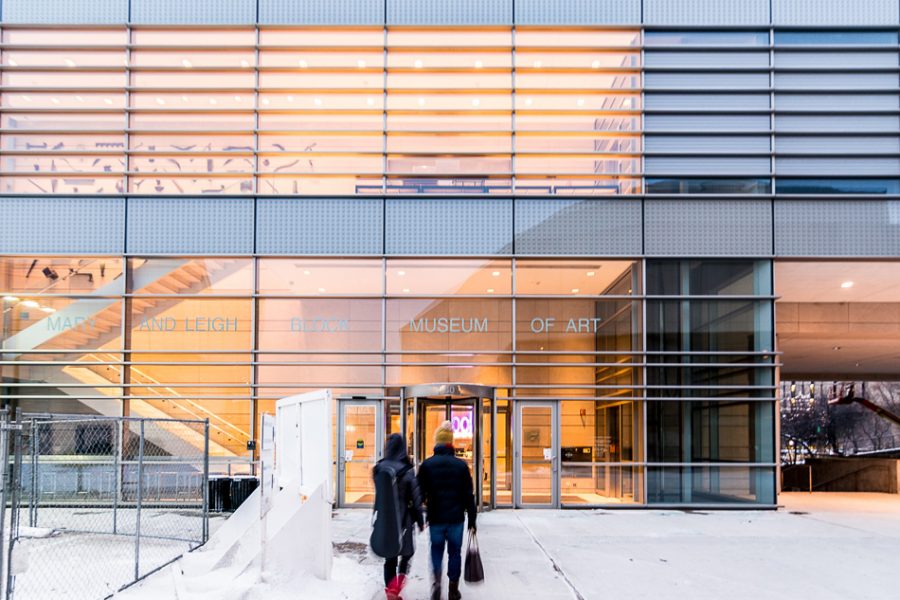Immigration activists talk staying resilient under Trump administration at Block Museum
The Block Museum. Panelists said people can help the African immigrant community in many ways, from organizing to donating, teaching and medical volunteering.
March 1, 2019
Despite the current administration’s stance on immigration, experts on migration urged students to stay resilient and continue to fight for the rights of migrants during a Thursday panel.
The panel discussion follows the opening of the Block Museum’s new exhibitions, “Caravans of Gold” and “The Leopard,” which celebrate African history and look into the history of African migration. Three activists on the panel, which was moderated by political science Prof. Galyah Ben-Arieh, spoke about best practices for supporting refugee populations to a crowd of about 70 at the Block Museum.
Panelist Jajah Wu, the deputy program director at the Young Center for Immigrant Children’s Rights, said her group works to protect the rights of migrants. Despite the adversity facing her cause, she said the current immigration crisis has given her the opportunity to collect information that will help lawmakers pass effective protections under a future administration.
“The real way to make change, especially when you’re talking to lawmakers … is to bring them the actual stories of the people,” Wu said. “Some of the really important work that we’ve been able to do is to say, we’ve worked with this 11-year-old and his father. This is what happened to them, what they needed, the rights that were eviscerated when they came into the United States.”
Seemi Choudry, director of the Chicago mayor’s Office of New Americans, said the city has been taking action to assist immigrants, such as creating the Chicago CityKey ID card, which removes barriers to obtaining government-issued identification.
Mirabel Wiryen, an immigrant and refugee resource specialist at the United African Organization, said her organization works to support the African immigrant community in the Midwest. She said help comes in many forms –– from organizing to donating, teaching and medical volunteering. It can become a day-to-day effort to remain brave in the face of the overwhelming challenges facing activists, she added.
“It becomes more than you, your own needs and your own wants,” Wiryen said. “And I have had to give up that and just say, ‘I’m going to focus on me, but I know that the greater purpose is to be of service for those who do not have anyone to hear them.'”
Following the United Nations’ recognition of “climate migration,” where people are forced out of their country due to drastic changes in the environment, the panelists added that the United States will have to reckon with the crisis. Current U.S. amnesty laws do not account for climate effects, they said.
Akbar Virmani — who is the former associate director of Northwestern’s Program for African Studies and a refugee who fled Uganda as a result of Idi Amin’s expulsion of South Asians from the country — said he appreciated the activists’ perspectives on addressing the refugee crisis. After attending the event, he added that he wanted to ask them more about a different angle: how to identify and address the causes of refugee crises.
“It’s great when organizations like the ones represented today multiply and begin to address these issues, but it’s also important not to be content with the success on that front,” Virmani said.
Email: [email protected]
Twitter: @avi_vrghs



